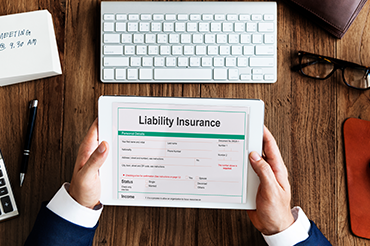
Liability Insurance
Liability insurance is designed to offer specific protection against third-party insurance claims. There are personal liability products as well as business liability insurance. Liability insurance can be classified as general liability, professional liability, and employer liability. In the case of a claim under liability insurance, payment is not typically made to the insured, but rather to someone suffering loss who is not a party to the insurance contract. Liability insurance provides protection against claims resulting from injuries and damage to people and/or property. It also covers legal costs and pay-outs for which the insured party would be found liable. Provisions not covered include Intentional damage, contractual liabilities, and criminal prosecution. When a claim is made, the insurance carrier has the duty (and right) to defend the insured. Though all the liability policies are not mandatory as per the law, there are certain liability laws prevailing in the country which make insurance of such liabilities mandatory, i.e., the Public Liability Act and Workmen Compensation Act.
Why is Liability Insurance Required?
This type of an insurance policy is generally procured by companies or individuals who may be held liable, legally for injuries or other issues. This especially the case for hospitals, doctors or even business owners. An example would be, if a product manufacturer sells products that have been faulty or causes damage to other’s products, then he/she may be sued for the damages caused. Procuring a liability insurance will cover the manufacturer from ensuing legal costs.

